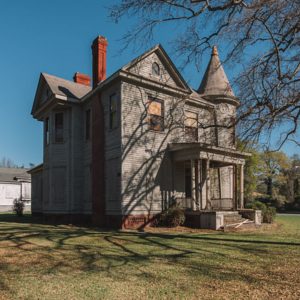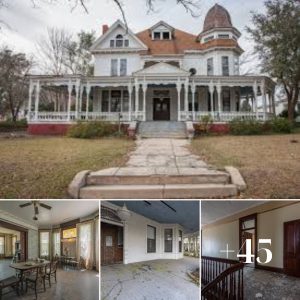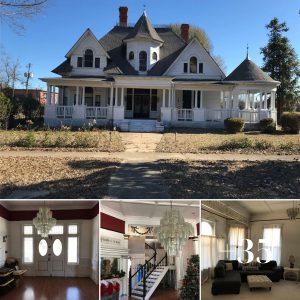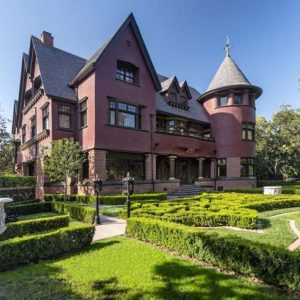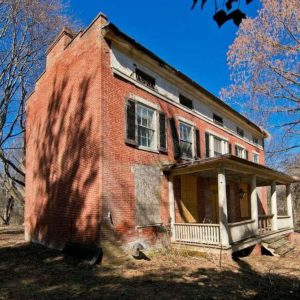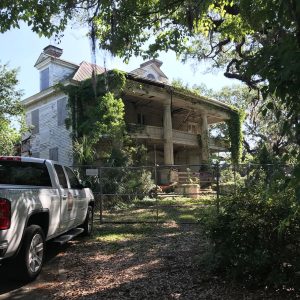What would later be known as Colonel White & Sons Funeral Home, the Cowan-Ramser House was constructed in the 1840s by local physician Dr. William Lockhart Cowan. William Cowan and his wife, Anna Pugh Cowan, lived in Maryville along with their daughter Maldonetta “Maldie” Cowan before moving to the developing city of Irwington, later to be known as Eufaula. Cowan would later build the city’s first drug store in 1850 in the downtown area. Many decades later, that building would house the Eufaula Athenaeum which contains a large collection of books focusing on the United States presidency, the Civil War, southern history, and southern literature.
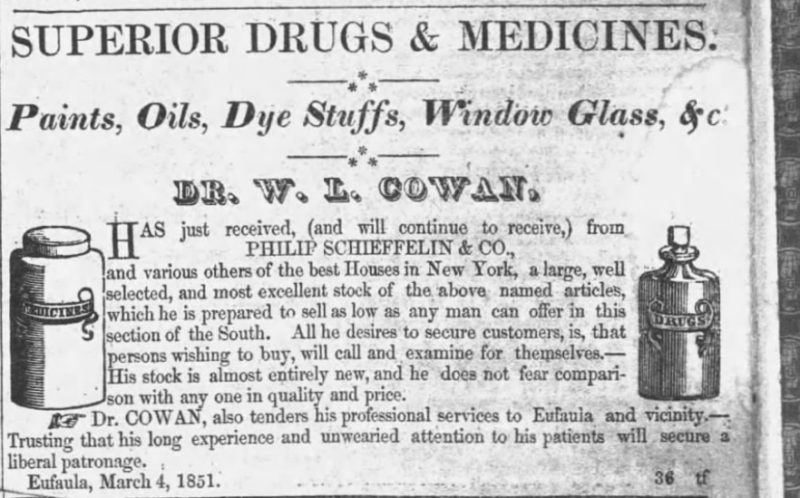
Dr. Robert A. Fleming
Laura Josephine Cowan was the second oldest daughter of the Cowans and met Dr. Robert A. Fleming in 1857, shortly after his arrival to Eufaula. Robert Fleming had graduated from medical school in Pennsylvania and worked under Dr. William L. Cowan as an intern. Laura and Robert would marry on September 22, 1858, and Robert soon moved into the Cowan family home where he would live for the next few years. Dr. William Cowan died “after a painful and protracted illness” on May 4, 1859.
In 1862, Dr. Robert Fleming took to walking in his sleep and in doing so fell off the 2nd-floor balcony onto the front porch, becoming paralyzed from the waist down. Immediately after the accident, Robert moved to Hurtsboro, Alabama to be in the care of his uncle, Dr. James Turner Persons. His career as a physician seemingly over, Robert and Laura moved to Union Springs where he took the position of county clerk. He was also a businessman and owned several properties, most notably the Josephine Hotel which was named after Laura Josephine Cowan Fleming. In the late-1860s, Laura Josephine’s mother and youngest sister moved out of the family home in Eufaula and moved to Union Springs to live with them.
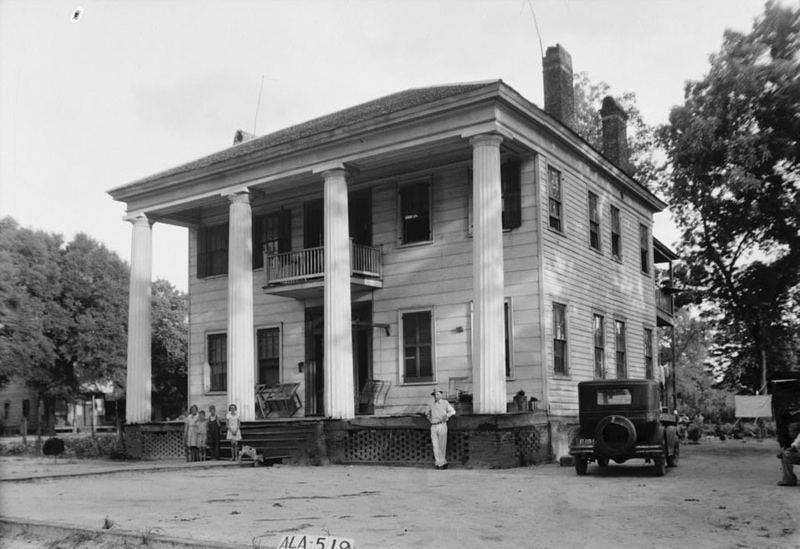
Jacob Ramser
After the family’s move to Union Springs, the house was sold to a craftsman by the name of Jacob Ramser. Ramser was a native of Switzerland and immigrated to Lumpkin, Georgia where he married Mary Singer before moving to Eufaula in 1852. He established a furniture and understanding business called Jacob Ramser’s, selling everything from dressers to caskets which is foreshadowing what his home would eventually become. The name would change to Jacob Ramser’s Sons when his sons joined the business years later and operated out of the Mammoth Furniture Store, a large three-story structure on Broad Street advertised as the “largest furniture store in the state”.
Ramser also built the structure that would later be known as the Pictorium, Barbour County’s first moving picture theater. He was a philanthropist and as such, gave back to the community in whatever way he could. He was the city superintendent of education, a member of the city council, and was once mayor of the City of Eufaula. Jacob Ramser died on September 14, 1892.
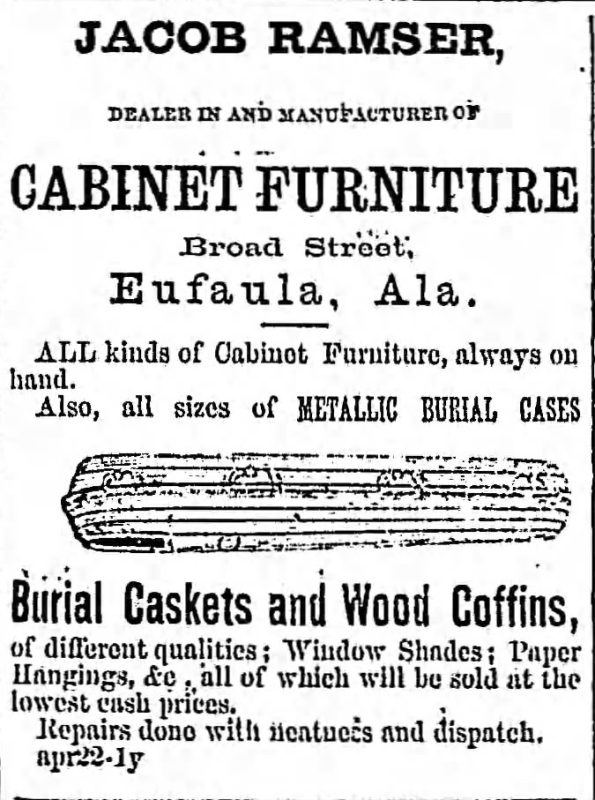
Colonel White & Sons Funeral Home
The Cowan-Ramser House was bought in 1948 by the Lewis family and converted into a funeral home. It was founded by Colonel White (Colonel being his first name, not rank) and co-owned by Kenzie Kelly Jr., a funeral director, and embalmer. However, it is unclear if the business was owned by Colonel White Jr. or his son, Colonel White III. It operated under the name Colonel White Funeral Home, followed by Colonel White & Sons Funeral Home when his son joined the business, just as the Ramsers had done many years prior.
After Colonel White III passed away in 1992, the business operated under the name Mrs. Colonel White & Sons Funeral Home until Mrs. White’s death in 2004, and the business was closed. The house deteriorated rapidly in later years due to damage sustained during a windstorm in 2017, causing severe damage to the roof and windows, followed by further damage caused by Hurricane Michael in 2018.
Along with the Moulthrop House, the Cowan-Ramser House was listed on the National Register of Historic Places in 1986 as a contributing structure to the Seth Lore and Irwington Historic District. The house is one of eight historic structures in Eufaula recorded during a Historic American Building Survey in 1935. It is also one of the last surviving Greek Revival residences in Eufaula. In 2019, it was placed on the Alabama Trust of Historic Preservation Places in Peril hoping the owner would take steps to repair the house. It wasn’t until February 29th, 2020, that a crew was spotted at the house clearing it out of trash and debris.
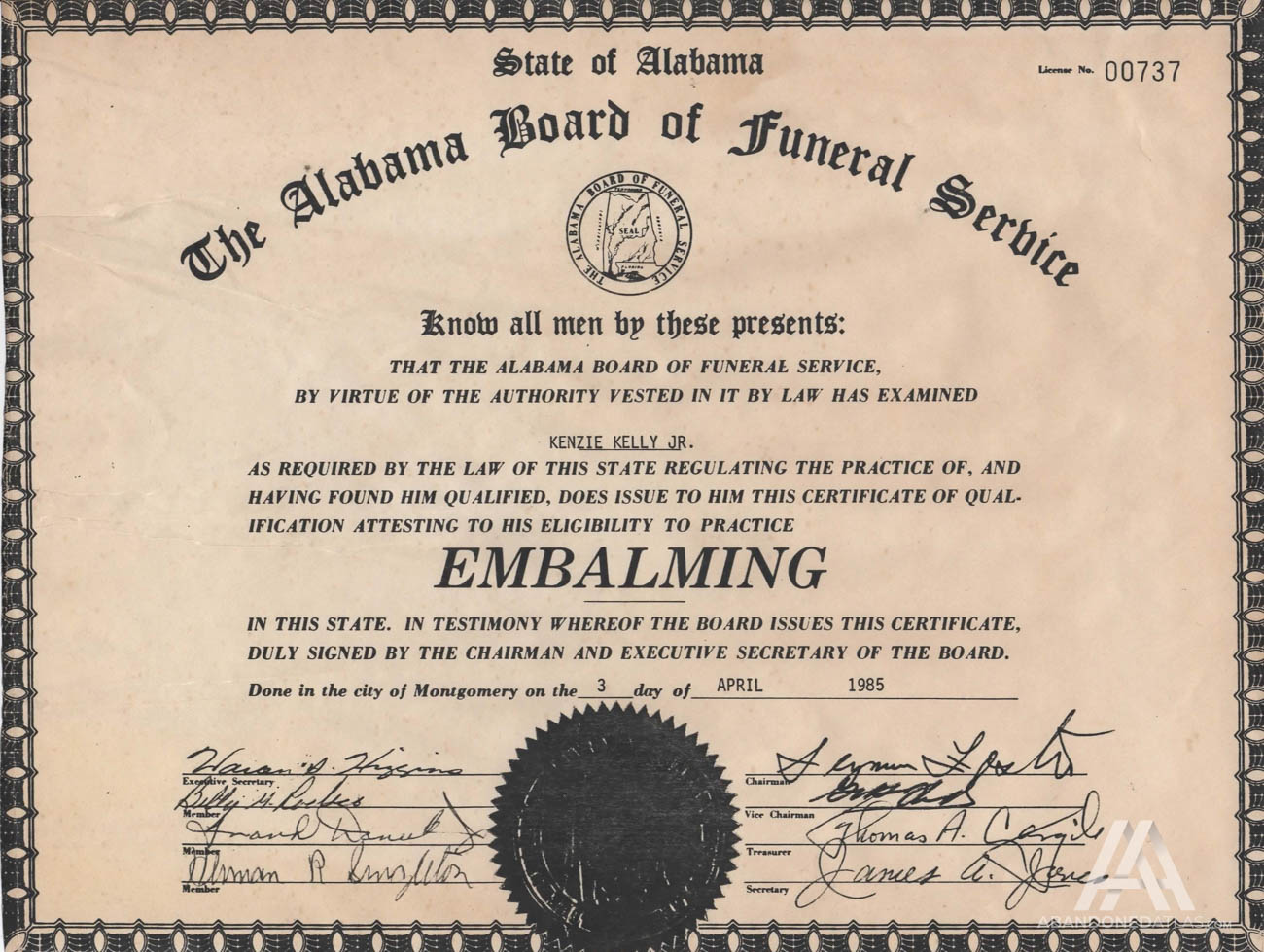
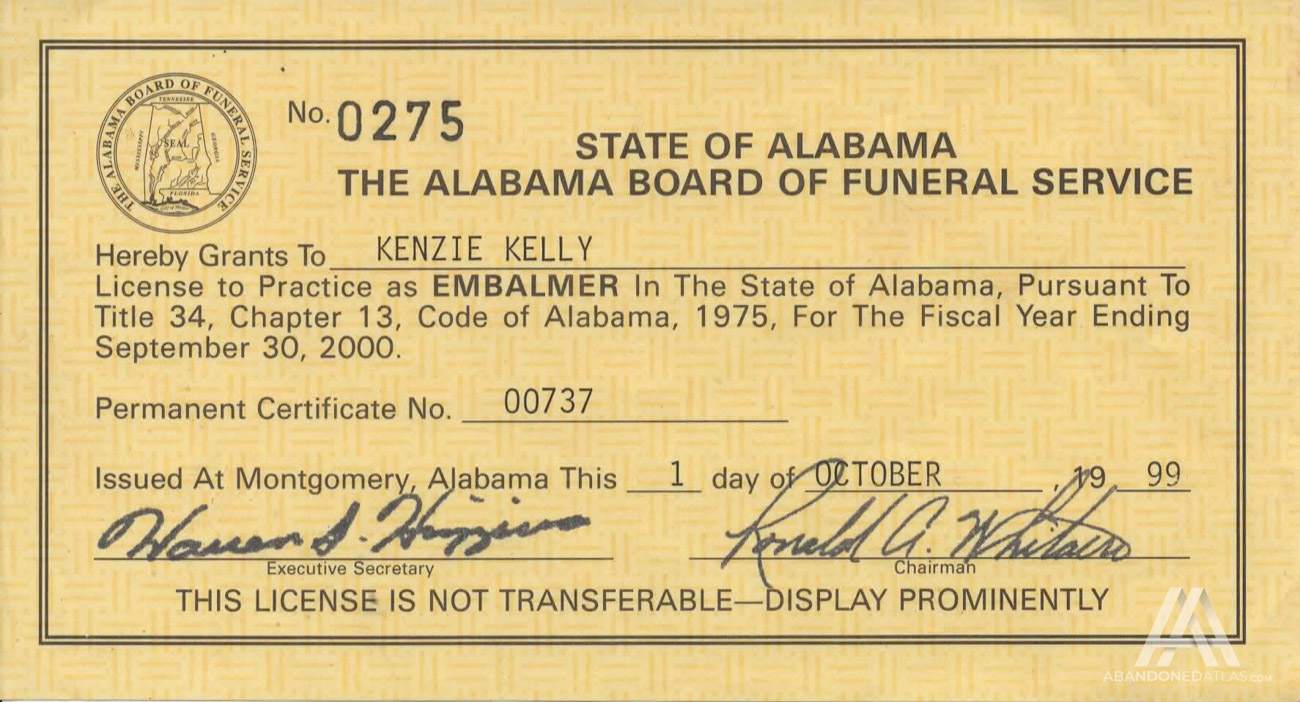
Photo Gallery
